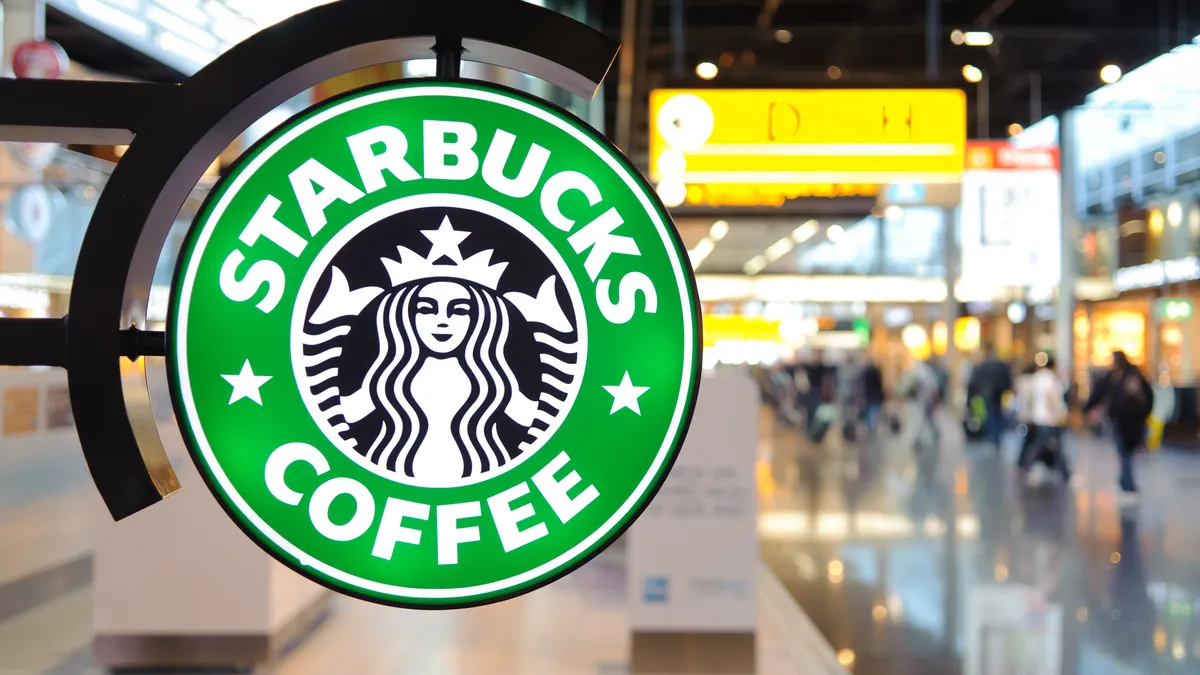Dive Brief:
- Activist group Stand.earth built a "cup monster" out of used Starbucks cups and brought it to the company's annual shareholders meeting this week to make a statement about cup recyclability, as reported by The Seattle Times.
Check out our #Bettercup pre-game show outside the @Starbucks annual shareholders meeting in Seattle! pic.twitter.com/D0YMqI0RXt
— Stand.earth (@standearth) March 22, 2017
- The protesters questioned why Starbucks never followed through with a nearly 10-year-old promise to make cups recyclable. The chain responded by saying its hot cups use 10% post-consumer fiber and this year, many hot cup lids were replaced with recyclable lids.
- The Times reported that incoming Starbucks CEO Kevin Johnson later invited Stand.earth executive director Todd Paglia to discuss the issue at-length.
Dive Insight:
While Starbucks has been announcing efforts since 2006 to make its cups more environmentally-friendly, it is clear the chain has not yet succeeded in designing a fully-recyclable cup for its markets across the world — which has led to public backlash on a global scale. While some Starbucks locations in the U.K. tested out a new recyclable coffee cup called Frugalpac in the summer of 2016 in response to this backlash, it is unclear if this initiative was successful.
The issue of coffee chain cup recyclability is not exclusive to Starbucks, either. A 2016 report found that U.K. citizens toss about three billion paper coffee cups a year, which sparked accusations toward Costa, Caffè Nero, and Pret about their recycling efforts. Nonprofit Hubbub launched a social experiment that distributed 11 large coffee cup-shaped bins across the city of Manchester with the goal of collecting 20,000 coffee cups for recycling, yet attention toward that experiment seems to have dwindled. It is now up to the coffee chain executives to foster change in the industry while remaining profitable.
Coffee cups are are not the only problematic element of the coffee industry, as single-use pods from brands like Keurig have also received negative attention. As the industry continues to find solutions for single-use products, it is important for manufacturers and retail leaders to stay on-top of these environmental initiatives and participate in the efforts.












